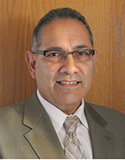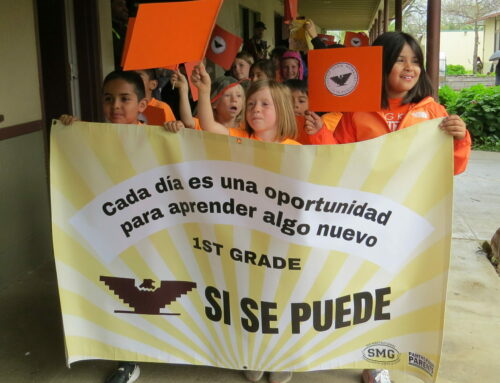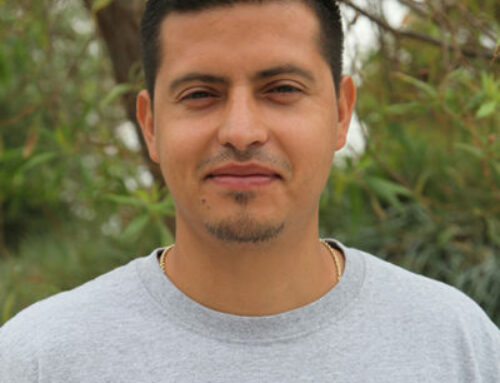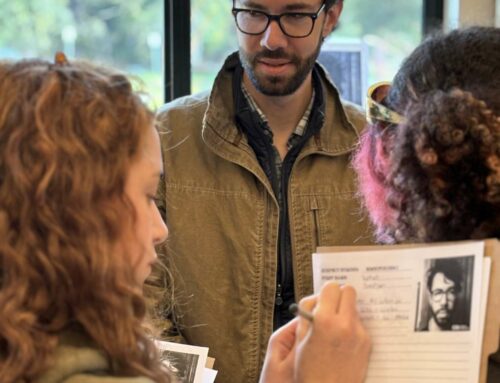Ramon Zavala has experience as a principal at several different levels
Published in the January 6 – 19, 2016 issue of Morgan Hill Life
By Staff Report
The Morgan Hill Unified School District last year hired Dr. Ramon Zavala to serve as the assistant superintendent in charge of Educational Services. He previously taught at the Compton School District in Southern California where he has served as senior director of accountability and instruction as well as interim assistant superintendent.
Zavala’s extensive background as an elementary principal, secondary principal, principal-mentor, and accountability and instruction coordinator as well as his collaborative servant-leader disposition have become assets for the district.
Morgan Hill Life asked him about how he views the local schools and how he intends to serve the students’ needs.
You recently replaced Norma Martinez-Palmer as the assistant superintendent of Educational Services. Describe your job position and how it provides benefits for students.
I am responsible for ensuring that all students are provided equitable access to quality instruction and are college/career ready by the time of their graduation. The blueprint for this instructional program is embedded in the Local Control Accountability Plan, which was written last year and board adopted on June 23 last year.
I hold the various departments in Educational Services and school sites accountable to confirming that all LCAP actions are effectively implemented. Our metrics for measuring how successfully the LCAP actions are impacting student learning are closely aligned to student engagement.
What is your educational background prior to coming to the MHUSD and how does it help you do your job?
My bachelors degree in English, masters in education, and masters in Spanish literature are the catalyst for my expertise in curriculum and instruction. As a teacher, I developed expertise in four curricular areas: reading, English language development, primary language instruction, and technology integration. I continue to provide direction with elementary and secondary curriculum.
To become an engaging instructional leader, I pursued my administrative credential, MS in Educational Administration, and doctorate in Leadership. For 28 years, I have been an administrator for elementary and secondary schools and district offices. I make every effort to build leadership capacities with staff, students, and parents.
One responsibility your division has is special education services for MHUSD families. What vision do you have in developing these services?
I share Student Services and Special Education Department’s vision to include families in planning high quality programs for all students with disabilities, which meet their social and academic needs. The collaboration also addresses required individualized supports while reinforcing independence and pro-social relationships with peers and adults.
To create this full inclusive culture, we are reaching out to all students who are at risk, providing interventions at any level, and providing access to the rigor of general education classrooms. To do this, the district has organized itself around a Multi-Tiered System of Support philosophy and is committed to all students.
How do you view the challenges of transitioning to Common Core curriculum in MHUSD and how well is that transition happening?
Over the past 16 years, schools narrowed the curriculum based on punitive accountability systems. Teachers were encouraged to work in silos and teach test-taking strategies. These practices are now the antithesis of the Common Core State Standards. Our work with the new English Language Arts/English Language Development Framework (2014) provides administrators, teachers, and readers with a plethora of descriptions and vignettes on how to deliver CCSS.
This year, teachers are participating in instructional rounds and are observing CCSS instruction. Our work with Multi-Tier System of Support will ensure we are providing all students equitable access to the CCSS.
Overall, how would you describe the morale and educational environment among the schools in the district?
I appreciate walking with principals through classrooms, computer labs, libraries and playgrounds. I also visit them in the evenings and weekends to observe parent meetings, staff training, and extracurricular activities for students. All school sites are vibrant and highly productive and project a positive morale.
Some school sites are experiencing new administrators, several are modernizing facilities, and others implementing new academies. All schools are getting an infusion of technology with new Chromebooks. Students are actively engage with their individual and group learning. Each school community diligently collaborates to provide students joyful learning experiences, progress recognition, and safe non-classroom experiences.







